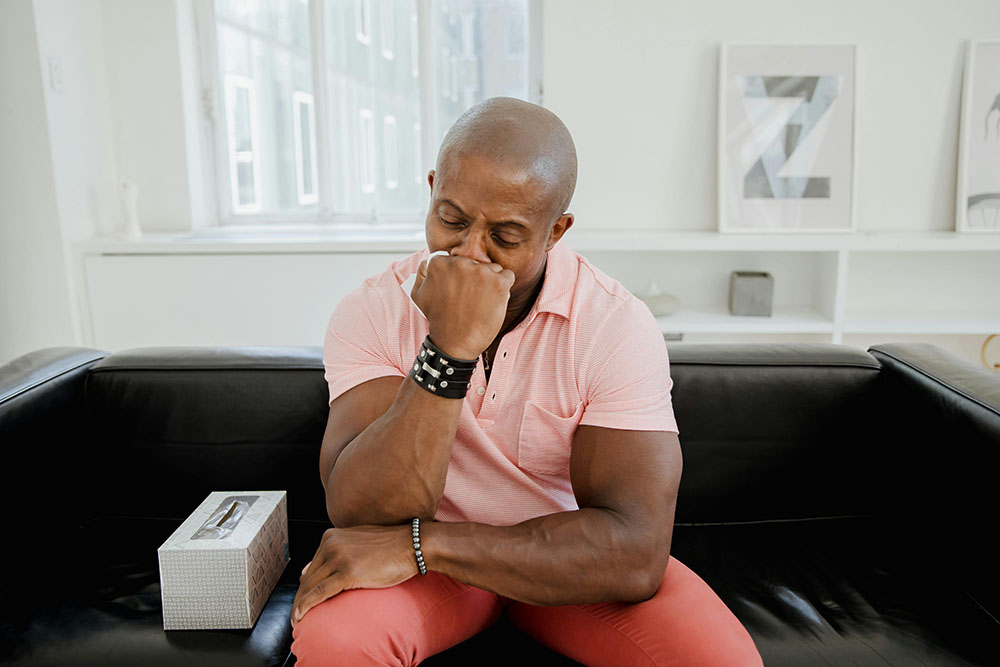Does DBT Work for Treatment-Resistant Depression?
Are you feeling trapped in a cycle of relentless depression that nothing seems to break? The frustration of trying treatment after treatment without success can be overwhelming. But don’t lose hope! A robust approach called Dialectical Behavior Therapy (DBT) might be the game-changer you need. With DBT therapy available on Long Island, you have access to specialized treatment focusing on mindfulness, emotion regulation, distress tolerance, and interpersonal skills. DBT could be your key to breaking free.
Keep reading to discover how DBT can bring relief and hope, helping you overcome the obstacles of treatment-resistant depression (TRD) and reclaim your life.
Understanding and Living with Treatment-Resistant Depression (TRD)
Living with Treatment-Resistant Depression (TRD) can be incredibly tough. TRD occurs when usual treatments, like various antidepressant medications, don’t work despite giving them enough time and at the proper doses. Imagine trying one treatment after another, each time hoping it will finally bring relief, only to feel let down again and again. It’s an exhausting cycle that can make you feel isolated and wonder if you’ll ever find a way out of the darkness.
Navigating life under a constant cloud of sadness and hopelessness despite diligently pursuing every treatment option available can be incredibly isolating and demoralizing. You might start questioning if you’ll ever feel well again. The toll on one’s mental health, relationships, and overall quality of life is immense, creating barriers to everyday functioning and personal fulfillment. The struggle is real, but it’s important to remember that you’re not alone in this journey.

Statistics and Impact
Statistics underline the widespread impact of TRD, revealing its prevalence among those diagnosed with major depressive disorder (MDD). Studies suggest that up to 30% of individuals with MDD may experience treatment resistance at some point in their journey. These numbers underscore the urgent need for effective interventions like Dialectical Behavior Therapy (DBT) to provide relief where traditional methods fall short.
Introducing DBT: A Beacon of Hope
Don’t lose hope for treatment-resistant depression! DBT could be the breakthrough you’ve been seeking. DBT offers a comprehensive approach combining cognitive-behavioral techniques with mindfulness practices for those searching for effective treatment. With four core components—mindfulness, distress tolerance, emotion regulation, and interpersonal effectiveness—DBT therapy on Long Island is tailored to help you manage intense emotions and build resilience in the face of adversity.
- Mindfulness teaches individuals to stay present and fully engage with the current moment, helping to reduce feelings of overwhelm and improve emotional regulation. This component of DBT is particularly beneficial for those with TRD, as it promotes a sense of calm and acceptance.
- Distress Tolerance skills help individuals cope with painful emotions and difficult situations without resorting to harmful behaviors. When traditional treatments fail, feelings of despair and hopelessness can escalate. DBT equips individuals with the skills to tolerate distressing situations and emotions without resorting to self-destructive behaviors, offering hope for treatment-resistant depression.
- Emotion Regulation strategies assist in understanding and managing intense emotions, reducing emotional vulnerability and reactivity. One of the core struggles in TRD is the inability to manage overwhelming emotions. DBT teaches individuals to identify and label their feelings, understand the triggers, and develop strategies to modulate emotional responses.
- Interpersonal Effectiveness skills enhance communication and relationship-building, fostering healthier interactions and conflict resolution. Depression can strain relationships and lead to social isolation. DBT’s interpersonal effectiveness skills improve communication and relationship-building, providing a support network crucial for recovery.
These skills are tailored to help individuals manage intense emotions, navigate interpersonal challenges, and build resilience in adversity. By fostering acceptance of difficult emotions while promoting proactive change, DBT aims to equip individuals with the tools needed to break free from the grip of TRD and reclaim their lives. With DBT, you’re not alone in this journey. You have a supportive system that understands and is here to help you.
Does DBT work for Treatment-resistant Depression?: Evidence and Research
Numerous studies and clinical trials have explored DBT’s effectiveness in treating TRD. Research shows that DBT can lead to significant improvements in depressive symptoms, even in individuals who have not responded to other treatments. For instance, a meta-analysis published in the Journal of Affective Disorders found that DBT was associated with a moderate to large effect size in improving depressive symptoms in TRD patients. Moreover, a study published in the American Journal of Psychiatry demonstrated that DBT not only reduced suicidal behaviors but also improved overall functioning in individuals with TRD over a long-term follow-up period. These findings underscore DBT’s holistic approach to addressing the complex needs of TRD patients beyond symptom management alone.
Real-Life Success Stories
One question we often hear is, ‘Does DBT work for treatment-resistant depression?’ The transformative impact of DBT is best illustrated through the real-life experiences of those who have successfully navigated the challenges of TRD.
Jane’s Journey
Jane had battled TRD for years, feeling stuck despite trying multiple treatments. When she started DBT, the process was slow and often frustrating. Initially skeptical, Jane gradually felt more confident dealing with the waves of emotion that used to overwhelm her and lead her to self-injure. While it wasn’t a quick fix, she began to notice small, meaningful changes. She could manage her symptoms better, had fewer emotional outbursts, and started reconnecting with friends and family. Today, Jane feels more in control of her emotions and reports significantly improving her overall quality of life. Her journey is ongoing, but DBT has given her the tools to navigate it more effectively.
Sarah’s Experience
Sarah describes her life before DBT as highs and lows, mostly lows. “I was skeptical about yet another therapy,” she admits, sharing that she didn’t expect therapy to work where medications did not. However, with consistent effort, she began to find value in DBT’s mindfulness and acceptance techniques. “It’s not that my depression vanished,” Sarah shares, “but I learned to live with my emotions without being overwhelmed by them.” She continues to use the skills she learned in DBT to maintain her mental health, experiencing more stable and brighter moments.

Michael’s Progress
Michael had a history of strained relationships due to his depressive symptoms and frequent anger outbursts. Starting DBT was challenging; he struggled with the group sessions and felt vulnerable. Over time, Michael began to see the benefits. “DBT taught me how to communicate my needs without anger,” he says. “It’s still hard work, but my relationships with family and friends are improving.” Michael’s progress is a testament to the ongoing nature of therapy and the realistic, gradual improvement DBT can offer.
Finding a Qualified DBT Therapist in New York
Finding a qualified DBT therapist is crucial to ensure you receive adequate treatment for TRD. If you’re on Long Island, DBT therapy through Suffolk DBT offers a team of experienced professionals dedicated to helping you. If you don’t live in New York, here are some actionable steps and resources to help you find the right therapist:
- Research Online Directories: Visit the Linehan Institute’s website for a directory of certified DBT therapists.
- Consult Local Mental Health Organizations: Contact local mental health clinics, hospitals, or community centers. They often have information about qualified DBT therapists in your region.
- Ask for Referrals: Speak with your current mental health provider, primary care doctor, or psychiatrist about your interest in DBT. They may have colleagues or associates trained in DBT and can provide a referral. Personal referrals can be valuable because they come from trusted sources who understand your circumstances.
What to Expect in DBT Sessions
In a typical DBT session for TRD, you’ll work collaboratively with your therapist to develop critical coping mechanisms. Here are some standard options:
- Individual Therapy: Weekly one-on-one sessions focused on addressing personal challenges and developing tailored strategies for managing emotions and behaviors.
- Group Skills Training: Weekly sessions where you learn and practice DBT skills in a supportive environment. These skills include mindfulness, distress tolerance, emotion regulation, and interpersonal effectiveness.
- Phone Coaching: Between sessions, you can access phone coaching for immediate support in applying DBT skills to real-life situations.
- Therapist Consultation Team: Your DBT therapist is likely part of a consultation team, which helps them stay motivated and effective in delivering DBT.
Practical Advice for Finding Your DBT Lifeline
Here are some additional tips to help you get started with DBT:
- Prepare Questions: Before scheduling appointments, prepare a list of questions to ask potential therapists. Inquire about their experience treating TRD with DBT, the structure of their sessions, and how they approach individualized treatment plans. Understanding their methodology and how they integrate DBT principles can help you make an informed decision.
- Be Patient and Persistent: Finding the right therapist can take time. Be patient and persistent in your search. The right fit is essential for effective therapy.
- Engage in Support Networks: Join online forums or local support groups focused on depression or TRD. These communities can provide valuable insights, recommendations, and emotional support as you navigate your treatment journey.
- Consult Local Mental Health Organizations: Contact local mental health clinics, hospitals, or community centers. These organizations often maintain lists of therapists specializing in DBT and treating TRD. They can provide recommendations based on your specific needs and location.
- Verify Credentials and Experience: Ensure that any therapist you consider is formally trained and certified in DBT. Ask about their specific experience working with clients who have treatment-resistant depression and inquire about their approach to treatment.
- Consider Teletherapy Options: If you cannot find a local DBT therapist or one doesn’t suit your needs, consider exploring teletherapy options—many therapists now have online sessions, which can be a convenient and accessible alternative. Ensure the therapist is licensed to practice in your state or region and inquire about their experience conducting DBT therapy remotely.
Finding the right therapist trained in DBT is crucial for effective treatment of TRD. By utilizing these resources and strategies, you can identify a qualified professional providing the practical, evidence-based treatment needed to manage and overcome TRD. The road ahead won’t be easy, but with DBT’s mindfulness practices and concrete coping strategies, you can break through treatment-resistant depression. Your life is worth fighting for—let DBT show you how.
DBT Therapy Long Island: Local Solutions for TRD
If you or someone you know is struggling with treatment-resistant depression, DBT therapy on Long Island offers a beacon of hope. By addressing the unique challenges of TRD through mindfulness, emotion regulation, and interpersonal skills training, DBT empowers individuals to reclaim their lives from the grip of depression. While the path to recovery may seem daunting, remember you are not alone. With the guidance of a qualified DBT therapist and the determination to embrace change, overcoming TRD is within reach. Take the first step towards a brighter future—explore DBT and discover the possibilities it holds for transforming your mental health.
At Suffolk DBT Long Island, we are committed to providing compassionate care and evidence-based therapies like DBT to individuals struggling with TRD. Our goal is to empower you to navigate the complexities of depression with resilience and hope. Whether you are personally battling TRD, supporting a loved one through their journey, or seeking effective treatment options in your practice, understanding the potential of DBT for depression is crucial in fostering healing and recovery. Reach out to us today to book your first appointment, explore your options, or get answers to any questions about DBT for depression. We’re here to help.










